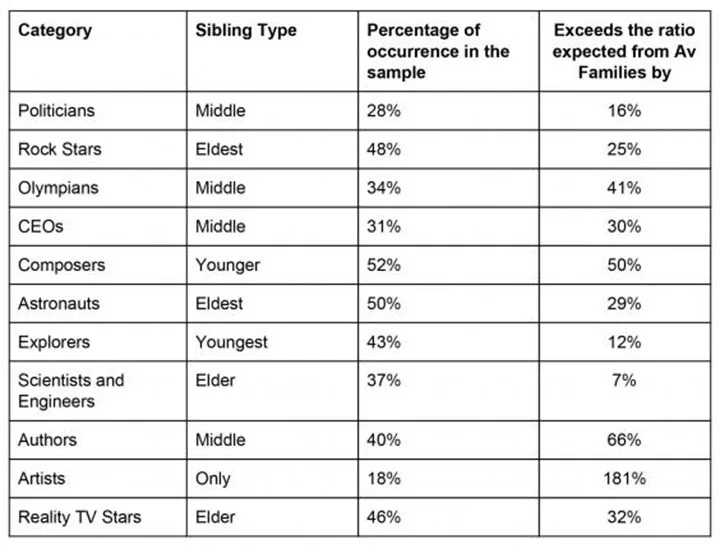We choose certain subjects in high school to get the scores we want for the degree we’re after and with a lot of hard work and a bit of luck we’re land the job we’ve always wanted right?
Not so much. Research has found that your “choice” of career could have been determined at birth.
A study led by psychologist Emma Kenny, backed by Disney, found significant evidence to support the theory that different siblings aspire to different vocations.
“The research conducted over the last month has shown that birth order is a significant factor in determining employment role types between siblings – overall there are far more typical cases than exceptions,” Kenny told The Independent.
They found that eldest children were more likely to become scientists or engineers (the majority of astronauts are first-borns) while the youngest were found to be 50 per cent more likely to have careers in classical music (like Johann Sebastian Bach and Mozart).
Only children were more likely to become artists, which researchers suggest is due to their “perfectionist and mature personality traits.”

RELATED: Having A Sister Makes You Happier, Study Confirms
It’s not the first time birth order has been linked to career path – a 2001 study found that only children and first-born kids were more interested in intellectual pursuits than their younger siblings. Later-born children were discovered to be more keen on artistic and outdoors-related careers.
“Parents typically place different demands and have different expectations of children depending on their birth order,” co-author Frederick Leong said.
“For example, parents may be extremely protective of only children and worry about their physical safety. That may be why only children are more likely to show interest in academic pursuits rather than physical or outdoor activities. In addition, those who are an only child will tend to get more time and attention from their parents than children with siblings.”
This article originally appeared on Women’s Health.










